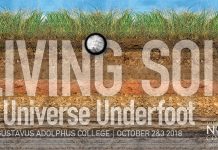What happens when a creative loses his inspiration? What can he do to get it back? Instead of fretting and stewing, Minneapolis author Dennis Cass, a frequent contributor to Minnesota Monthly whose work has also appeared in Harper’s, GQ, and Slate, faced down every scribe’s worst fear—writer’s block—by undertaking a neuroscientific examination of his own brain. How does the mind work? What makes it work? And can understanding neuroscience help you better understand yourself?
His search for answers led Cass to talk to experts, subject himself to tests and scans, and even examine his personal past. The tale of this journey, Head Case: How I Almost Lost My Mind Trying to Understand My Brain, will be released by HarperCollins this month.
How much did you know about the brain before you started researching your book?
I am not a scientist; I am a layperson. I am the layest of laypersons. Before I wrote about the brain I wrote a lot about television and food. I was an English major—a lazy English major. Some people might say I have little business covering this subject matter. Those people are right.
How did this book begin?
In the summer of 2002, I was suffering from a paralyzing bout of writer’s block. For somebody who lives and dies by his ideas, this was a problem. Then I had this thought: How can you live by your wits if you have no idea how your wits work? To me this seemed like the most profound question in the entire history of thinking.
So, Einstein, how did you proceed?
I immersed myself in brain science. The idea was to piggyback on real studies so I could see how brain science worked from the inside out. I smoked cigarettes at the University of Iowa, did fear conditioning in New York, got my brain scanned at the University of Minnesota, and even went to the Society for Neuroscience annual meeting, twice.
What was the most interesting thing you discovered about the brain?
What a faker it is. Even something as seemingly simple as vision is guesswork. I used to think the brain takes pictures. Instead, the eyes scan the environment—the fancy term is saccade—and the brain kind of fills in the rest. Taken as a whole the brain is a survival tool, and there is so much internal and external stimulus that the brain can’t handle it all. So it kind of wings it. It’s not perfect.
What did you discover about your own brain’s operation?
I can be easily conditioned to react in fear. In a fear-conditioning test, you get an electric shock every time you see a blue square, and no shock when you see a yellow square. Later in the experiment, when a blue square comes up, even if there is no shock, your body still reacts as if there were a jolt. It’s not so much that you scare easily, but that you more readily use pain to make associations.
This experiment made me rethink my life, things like my estranged relationship with my stepfather and why I left New York for Minneapolis, both of which became a big part of the story.
How did your friends and family react to your obsession?
Sometimes my friends thought it was interesting. Sometimes they thought I was being tiresome. So really not that different than any other time.
So is writer’s block an actual scientific phenomenon, or a myth?
I never got into the science of writer’s block. I got carried away by my interest in other aspects of the brain, but I did answer my original question. You live by your wits without knowing how they work. Understanding the mechanism doesn’t make the machine run better. And in many cases it’s better not to know. I wouldn’t say that ignorance is bliss, but it’s not a bad place to start.
Terry Monahan is a Minneapolis writer.
Cass speaks March 8 at Borders in Minnetonka, 952-595-0977.






